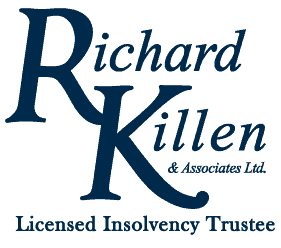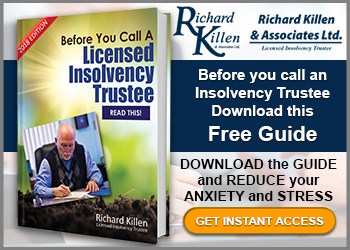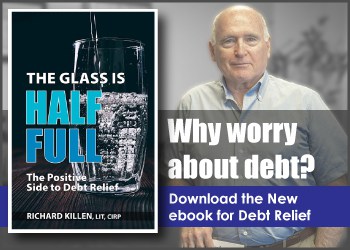Getting a Secured Credit Card to Restore Your Credit Rating

If you’ve recently filed bankruptcy or a consumer proposal, a secured credit card is a way to help you rebuild your credit rating and develop a stronger financial future. It’s not a fast track way to build credit or improve your score, but it’s a clear and simple step that can get you there over time.
A consumer proposal and bankruptcy are effective debt relief solutions that offer immediate relief from overwhelming debt as well as legal protection from creditors. However, they do have a negative impact on your credit score. In general, once you file a consumer proposal, you will have an R7 rating whereas declaring bankruptcy will give you an R9 rating – both very low scores as measured on a scale of R1 to R9 by the credit bureaus. Moreover, these low ratings will remain on your credit profile for three years from the date of a consumer proposal is fulfilled and for six years from the date of discharge from a bankruptcy.
How to rebuild after a Bankruptcy or Consumer Proposal
Although a low rating will stay on your profile for a few years, you don’t have to wait that long to rehabilitate your credit. You can begin immediately and start credit after a bankruptcy or consumer proposal by getting a new mortgage, car loan, credit card, bank loan, etc. In other words apply for some credit. It doesn’t have to be much. The point is to show you can handle the credit you get. In as little as two to three years you can re-establish credit and may even have a better credit rating than before you started!
Among the most crucial factors in rebuilding credit is developing a positive payment history and managing finances responsibly. You need to be able to demonstrate to lenders that you can pay back the money you borrowed on time consistently and prove that you can responsibly manage debt.
Credit behaviour matters as it reflects your track record of making timely payments on your loans and credit cards. Discipline is key as consistently paying on time demonstrates financial responsibility and can boost your score. Keeping a balanced credit utilisation ratio is also advisable for a positive impact. A good rule of thumb for credit usage is to never exceed 30% of your total available credit limit.
Working to rebuild your credit can feel nearly as daunting as getting out of debt, but with the right process and a clear sense of direction and commitment, you can get where you want to go. The most crucial factor is to carefully consider options and pick the right path. Not all paths to rebuilding your credit will suit your unique financial situation and goals.
How can I use a secured credit card to rebuild credit
A secured credit card is a great choice for someone looking to build or improve your credit history. If you use them responsibly, secured credit cards can help you increase your score over time. Many licensed insolvency trustees, debt counsellors and other financial professionals often suggest using a secured credit card to rebuild credit.
Secured credit cards are a special type of card typically designed for those who are looking to rebuild their credit. These cards are more accessible for people who have low credit scores.
A secured credit card requires a cash deposit from the cardholder. This deposit acts as collateral for transactions. In case you can’t make payments, the lender can use the deposit to pay the debt. The credit limit for the credit card is equal to the amount that you put down as deposit.
Use a secured debit card similar to how you would use a debit card, keeping in mind that you’re using your own money every time you make a purchase, rather than borrowing funds from a lender.
The key to building credit with a secured credit card is to practice three essential habits.
- Use your secured credit card wisely – Make sure to use the card each month for one or two small purchases without overspending or missing payments.
- Keep your balances low – Avoid maxing out your credit card and try to keep your balance low and aim to maintain your credit utilization below 30 percent ideally.
- Pay off your debts like clockwork – Show responsible credit habits by always paying your balance on time and in full every month.
Keep in mind that the goal is to demonstrate responsible credit use to increase your credit opportunities in the future.

Choosing the right secured credit card
One factor to help you build really strong credit is making sure you choose the right secured credit card that will meet your needs. These features are essential to ensure the card you use is a helpful tool for building and improving credit.
- Choose a card that reports to credit bureaus. Make sure you ask whether the issuer reports your repayment behaviour to Canada’s credit bureaus: TransUnion, Experian, or Equifax. Not all secured credit cards will do this, which defeats the purpose of opening an account. A prepaid credit card doesn’t usually report at all. If reporting is not available, look for a different secured credit card or another credit card option suitable for bad credit.
- Choose a card that requires a reasonable security deposit. In Canada, secured credit cards typically require deposits of $200 to $500 and can be as high as $10,000. There are also many secured cards that allow you to put down even less collateral, as low as $49 to start. Keep in mind that the cash deposit will not be accessible unless you close your account, so choose what you can afford to pay. A card with a low minimum required amount will work if you’re short on cash. A secured card with a higher deposit can help improve your credit utilization ratio and potentially boost your credit score faster, but it can also increase the temptation to overspend.
- Choose a secured card that doesn’t have outrageous fees. Watch out for large monthly or annual fees that can deplete your deposit. It’s also important to consider other helpful benefits, such as an opportunity to increase your credit line, an offer to upgrade to an unsecured credit card or refund your deposit if you can show that you manage your line of credit responsibly and make a series of payments on time.
If used strategically, a secured credit card can be a helpful tool for building and improving credit after bankruptcy or a consumer proposal. The right secured credit card can help you obtain new credit and re-establish a good payment history.
Talk to a Licensed Insolvency Trustee such as Richard Killen & Associates Ltd. about getting a secured credit card after bankruptcy or consumer proposal and get helpful strategies that can effectively repair your credit rating and help you avoid racking up new debt.
Understanding your credit rating
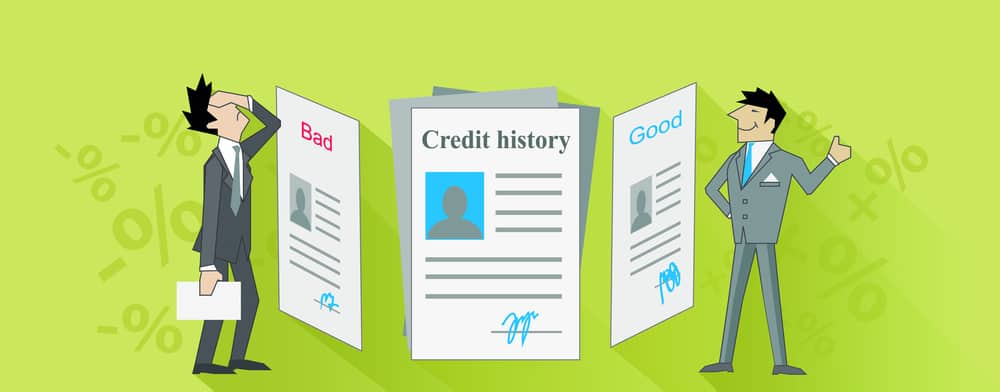
When it comes to managing debt, do credit rating reports help?
There is a simple way to avoid taking on personal debt: never take out a loan without first knowing its purpose, the long-term goals and benefits it will achieve, and the plan to pay it back. Simply put, use credit with good judgment ideally to profit from your borrowing. But as we all know, we often borrow without considering the consequences, and then we find that our debts pile up quickly, resulting in an overall negative impact on our financial position.
Look before you leap
The best way to know how to control debt is to look before we leap. We need to ask ourselves if the credit is necessary, what it will involve, is there a better way to get what we want without incurring this debt and how fast will we be able to get rid of it. Also, it’s good to know where we stand with our creditors. If we know exactly who we owe, we can figure out how much we owe, either as a pay-out figure or as an amount to be repaid over time. If we’re not sure who we owe we can also pull our credit report from each of the two national credit bureaus in Canada: Equifax Canada and TransUnion Canada. If we just need to see what debts we have and how much we owe, looking at our credit reports is a great place to start, though it probably won’t be able to provide current amounts owing.
These credit bureaus are companies who carry a file on each of us which was opened the first time we applied for a credit card and it contains all our financial information, at least where our credit is concerned. This information is usually supplied by the credit companies with which we do business. When we request a report, it will give a fairly detailed summary of our individual credit history including key information on all our financing transactions like our credit card balances, outstanding mortgage, auto or student loans. It will also note any negative events like a default collection record, bankruptcy or consumer proposal filings, or any other court-related event like a judgment or garnishee, tax liens and even promissory note defaults from personal loans, even from friends and family if they are reported. The credit bureau report will also provide past creditor information that we may have forgotten about because a lot of time has elapsed since we last paid them.
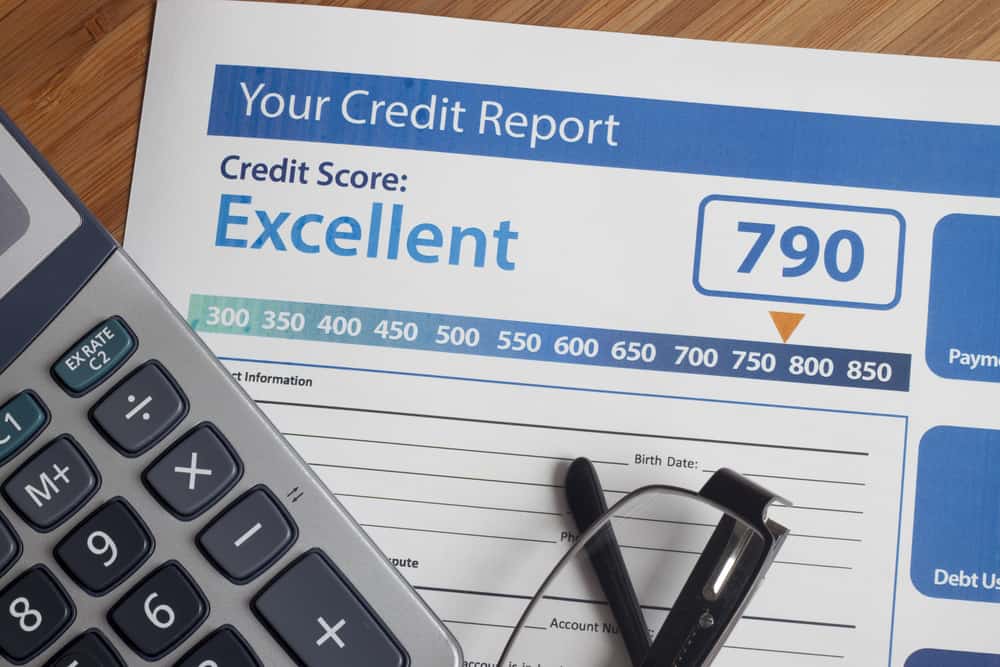
Ideally, obtaining a report from both credit reporting agencies is a good idea because there is no guarantee that they will both have the same information. But before requesting a report, it’s important to know a few things about how this system works and that our rights are protected. In Ontario, the credit bureaus are regulated by the provincial government through the Consumer Reporting Act. This law lays out:
● what a consumer reporting agency can report,
● how a consumer’s credit report can be used,
● when someone can request a credit report, and
● what consumers can do if their files contain any information that is wrong or incomplete.
The Consumer Reporting Act also recognizes that businesses, landlords and employers need to have correct information, but at the same time it must ensure:
● that agencies collect, maintain and report our credit and personal information responsibly;
● our right to know what is being reported about us and to whom; and
● our right to correct (or fix) information about ourselves that is inaccurate.
When we receive our report, we will see a score — a number on a scale — that indicates whether we are in good stead with our creditors or whether we have some adjustments to make to improve our score. Basically, every transaction we make, every application we file and every legal action we get involved with ends up on our file for others to see, and those actions are taken into account when determining our score. While on the surface, this process may seem daunting, but in fact it’s empowering. Not only can we ensure that our information is true and accurate, we can also use the knowledge to improve how we manage our debt, which is good news.
Richard Killen, Licensed Insolvency Trustee and author of the new eBook The Glass is Half Full which is now available to be downloaded for free from iBooks, Amazon, Indigo and Kindle. Richard Killen & Associates, with offices conveniently located across the GTA, have been helping Canadians resolve their debt issues since 1992.
Good and not-so-good debt: What’s the difference?
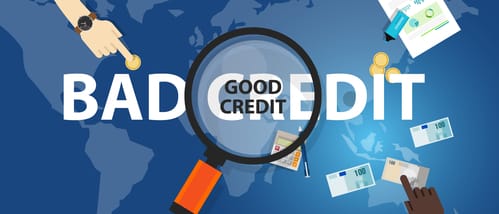
If you use credit with good judgment and with a solid plan to pay it off, you stand a good chance of profiting from the funds you borrowed. It’s important to remember that when it comes to taking on debt, you should approach the decision carefully and only take on debts that will grow your financial worth and/or positively affect your life. The best way to know how to control debt — along with most things in our lives — is to look before you leap. Be sure to ask yourself if the credit is necessary, what will it involve, is there a better way to get what you want than by incurring this debt and how fast will you be able to get rid of it. For example, ask yourself:
- What is its purpose, i.e. the long-term goals and benefits you will achieve as a result of taking on the debt?
- How you will pay it back?
- And, where it fits within your cash-flow budget?
One way to ensure that taking on new debt won’t be an issue for you is to understand the difference between good debt and not-so-good debt.
Good debt generally has the following qualities:
- It is taken on for something that will likely not lose value over time
- It will leave us better off in the long-term and provide us with lasting and, with luck, ever-increasing benefits
- The debt will not have negative consequences on our present and near-future overall financial position
- It will help us manage our finances more effectively
- It will help leverage your wealth
- The debt is used in a responsible way, with details carefully thought out and with the long- term view in mind
- There is a clear and specific reason for taking out the debt
- There is a realistic plan for paying back the debt as quickly as possible
- The debt was obtained through the cheapest and most effective borrowing method available, with the most reasonable interest rate, term and charges
Not-so-good debt has the following features:
- It feels like free money
- It often provides some form of instant gratification
- It will not provide some increase in value to us over time
- It reduces your wealth or offers no opportunities to grow wealth
- It keeps growing, because of the interest rate and supplementary charges
- It seems like it will never be paid off
- It may have an unrealistic repayment plan
How to stay out of debt
The fact is that no matter how much our financial life may have jumped the rails, you always have the power to get it back on track, regain control and avoid debt situations like bankruptcy. You’ve also seen how much of a role our attitude plays in grasping that empowerment. Seeing the glass to be half-full rather than half-empty can make all the difference in the world. If you can manage your credit wisely, you can enjoy the many benefits it offers. As you know, it can be a very useful tool by helping you accomplish important life goals, boost your net worth over time and enhance your quality of life, just so long as you remain the one in charge.
The next logical question likely is: “What can I do to make sure that I do remain the one in control of my debt?” Of course, the short flippant answer is: don’t borrow. But as we’ve already seen, there are times that taking on debt will be necessary. The majority of us may see abstention as too lofty a goal. It can be done, but very few of us will be in the envious financial position of having the money to satisfy all our needs, and our wants, without borrowing. The trick will be to manage it properly and not allow it to take control.
Consider sticking the following reminders to your fridge to help keep you on the straight and narrow in 2019:
- Best way is to stay out of debt completely, don’t borrow full stop. But some are not avoidable:
- Mortgages
- Car loans
- Student Loans
- Impulse — clothing, food, entertainment
- f you actually need to take on some debt, what is it that you are trying to accomplish?
- Have a plan – this is the goal of how you’ll pay of the debt
- Develop good habits and stick to positive financial routines
- Most important, learn to manage your cash flow
- Create a simple cash flow spreadsheet or table; this can also be done through money management software like Intuit Quicken or MS Money
- Make tracking your money an automatic process; enter and update your transactions regularly
- Remember, when it comes to tackling your debt:
- Be honest with yourself about what went wrong
- Make a decision to tackle the problem
- Seek professional advice to understand your options; remember, you’re not alone, keep your pride in check
- Accept the reality of the situation and stay positive
- if it becomes too much for you to handle, never be afraid to consult with a debt expert or professional.
Is A Payday Loan A Good Idea?
In this video, Richard Killen, a Licensed Insolvency Trustee in Bankruptcy Scarborough talks about whether a Payday loan is worth considering.
I guess one can say that going into debt, any kind of debt, is hardly ever a good idea. Usually, the cost of the debt outweighs whatever benefits you may get from borrowing the money. However, sometimes debts make a good case for making some worthwhile. For instance, is a mortgage worthwhile? Because you borrow a large amount of money for buying a house, you are going to pay back that money with interest but the house will appreciate in value. And over time that appreciation more than outweighs the cost of the debt. Maybe that kind of debt is a good idea.
Ultimately, it always boils down to whether the cost too much and how much is the cost? Now there is going to be interest on any loan and that is what you must consider. Now, unfortunately, Payday loans are on the high end of all interest calculations so one can say that it is tough to say if a Payday loan is worth it.
If a Payday loan is a part of your coping with bills, you should consider having a consultation with one of our trustees. It may be the most stress relieving call you make this year.
Is your credit rating affected?
In this video, Licensed Insolvency Trustee in the GTA area, Richard Killen, talks about the how your credit rating will be impacted by your current financial situation and is not directly due to the fact that you are undergoing bankruptcy or a consumer proposal. As a matter of fact, it is the solution you need to get out of your financial troubles and start improving your credit rating.
Here are a few key takeaways from Richard’s informative clip:
- Of course, a person’s credit rating is affected, but not so much by the bankruptcy or consumer proposal itself. It’s the non-payment of the debts that negatively affects your credit rating.
- Most people who go bankrupt or do a consumer proposal have already fallen behind in payments and their credit rating is already diminished.
- One thing for sure: the only way to restore your credit rating is by taking care of the immediate problem- and that‘s where the bankrupt or consumer proposal does the job.
- Think of a bankruptcy or a consumer proposal as the solution, not the problem.
Should you still feel uneasy about your debt and losing your assets, it’s definitely worth it to give a Licensed Insolvency Trustee a call or a visit so that they can give you all the information you will need to make this important decision and also to alleviate any worry and stress you may have.
There is no cost for your initial meeting and we will explain all of your options to you. We can meet with you during business hours or book after hours appointments if that is more convenient. Richard Killen and Associates is a Licensed Insolvency Trustee in bankruptcy Scarborough and have 10 locations across the Greater Toronto Area. Call us at (416) 285-9511
How To Rebuild Your Credit Rating
 Your credit rating has taken a beating. You regularly pay bills late. Sometimes you can’t make even minimum payments. Perhaps you’ve gone through a bankruptcy or the consumer proposal process.
Your credit rating has taken a beating. You regularly pay bills late. Sometimes you can’t make even minimum payments. Perhaps you’ve gone through a bankruptcy or the consumer proposal process.
But what now? How do you rebuild your credit rating?
Find Out Where You Stand
First, to see where you stand, get your sactual credit rating from TransUnion Canada or Equifax Canada.
OK, you’ve absorbed the bad news. If you’ve gone through the bankruptcy or consumer proposals process with a licensed trustee such as Richard Killen & Associates, you would have had some credit counselling sessions that would give you valuable advice about how to manage your finances and restore your credit rating.
Replace Bad Credit With Good
You would be shown, for example, how to use credit wisely. You should buy only what you can afford to pay back and make payments on time. In fact, all your bills should be paid on time.
Simple to say, hard to do. The credit counselling sessions provided by Richard Killen & Associates Ltd. will give you strategies on how to achieve this discipline.
As a credit-redeeming strategy, you might even want to purposely get a loan, though it will probably be at a high interest rate. Just borrow $1,000 or so and make sure you make your monthly payments religiously. Automatic debit from your account is probably the best way to ensure that. After six months or so you’ll be receiving an R-1 rating from this creditor. That’s a start.
But Don’t Go Overboard
The loan-on-purpose strategy notwithstanding, you shouldn’t get too much credit. The more you have available to you, the more tempting it is to use. Having too much credit can also hurt your credit report. So do not fill in too many applications for credit and loans because every time you do, your credit history is checked, which can affect your score.
Get a Secured Credit Card
A secured credit card requires you to have a balance. So, for example, if you have a balance of $500, then you might have a credit limit of $500, maybe more depending on the creditor and your arrangements. In effect, it is a no-risk or small-risk credit card. But the very act of using the card and paying your credit card bills on time will help to restore your rating.
No Minimum Payments
Get in the habit of paying your bills, especially your credit card bills, in full, rather than making a minimum payment and carrying the balance. We can’t stress this tactic too much. It is the key to good credit card management.
There are many strategies you can use to get back to financial health. The best first step could be a free consultation with a licensed trustee at Richard Killen & Associates Ltd., who will help you to understand your options in dealing with credit challenges.
What Happens to My Retirement?

If that comes about, one of the concerns you may have is what will happen to your retirement savings and your pension? Well, generally speaking, you have nothing to worry about. Though the legal process can get a little complicated, for the most part nothing will happen to your RRSPs, RIF, LIF, especially your government pension or company pension.
Other kinds of plans might sometimes be affected, depending on various factors. However, you don’t have to wonder or worry; you can get the facts from us, Richard Killen & Associates. That’s what we’re here for.
So call Richard Killen & Associates today for a free consultation at our office nearest you. We have offices across the GTA. 888-545-5365. Or visit us online at killen.ca. It may be the most stress-relieving call you ever make.
See also “A New Problem for the Old.”
Relief From Collection Agencies
 Hi. I’m Richard Killen, from Richard Killen & Associates. When you fall behind in your debt payments and creditors and agencies start calling, simply answering the phone can be an ordeal, especially if it’s never happened to you before.
Hi. I’m Richard Killen, from Richard Killen & Associates. When you fall behind in your debt payments and creditors and agencies start calling, simply answering the phone can be an ordeal, especially if it’s never happened to you before.
As a Licensed Insolvency Trustee, I see people in this kind of situation every day. The good news is that we at Richard Killen can actually help you with this problem.
The Bankruptcy & Insolvency Act immediately puts a stop to collection calls, lawsuits, even garnishees, and you don’t even have to go bankrupt. But only a trustee like Richard Killen & Associates can provide this for you.
So call Richard Killen & Associates today for a free, no commitment consultation at our office nearest you. We have offices across the GTA. Call 888-545-5365. Or visit us online at killen.ca. It may be the most stress-relieving call you ever make.
